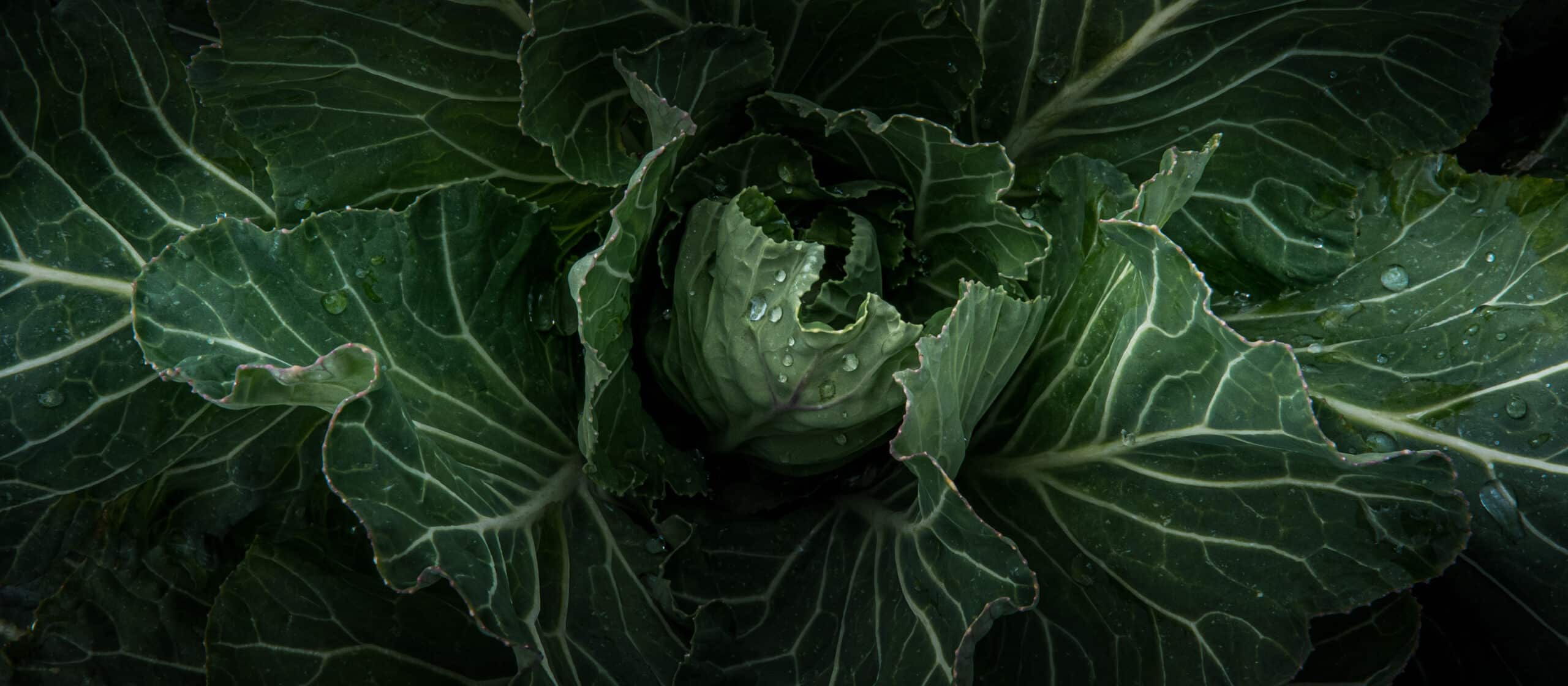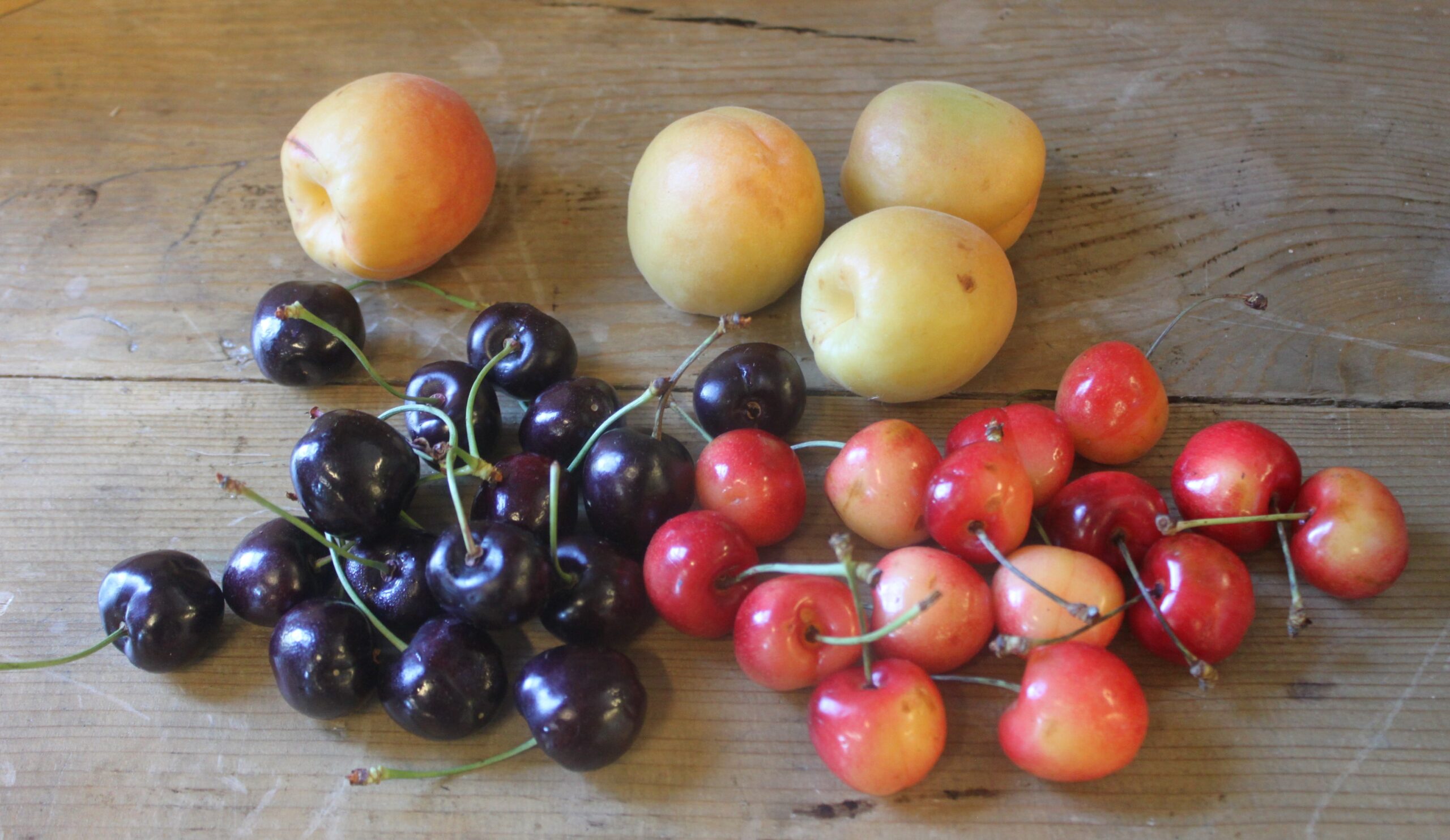
What’s in a Pluot, or an Aprium, or a Plumcot? A Lot of History!
What’s in a Pluot, or an Aprium, or a Plumcot? A Lot of History!
- posted on: June 9, 2017
- posted by: 21 Acres
"*" indicates required fields

The strawberries are ripening on the vine and the apple trees are covered with blossoms being busily pollinated by our local pollinators. Fruit season is here! To celebrate, we sat down with Marcel Kluetz, General Manager of Collins Family Orchards, to learn more about the interesting varieties they grow on their farm.
Collins Family Orchards is a fourth generation family farm in Selah, WA. Calvin Collins leads the charge with over forty years of experience.

The farm’s aim is to implement the best farming practices to keep the trees and land healthy, productive and sustainable. Says Marcel, “We prune our trees and thin the fruit set extensively; our goal is quality, not quantity.”
Over 50 fruits are grown on the Collins’ 63-acre farm. At 21 Acres Farm Market we have a nearly year-round supply of fruit from Collins. Starting with cherries in June, (Jen loves the Sonata), through the summer months with apricots, plums, peaches and hybrids, then on to pears and apples, which close the circle back to cherries. Collins shares a controlled atmosphere warehouse with other local farms to store their apples and pears in best condition. The Pink Lady apples in the Farm Market this spring came from this warehouse and kept especially well.
‘Hybrid’ may be common lingo for a car today, but most of us over 30 relate the term to biology class and experiments with different plants, like peas. Some hybrids are produced “through grafting and natural limb mutations where a tree will take on a different type of fruit on just one branch, then produce a hybrid fruit, usually due to cross-pollination,” explains Marcel. (Look for the grafted apple and pear trees near the entrance to the Farm Market for an example).
Here is where things get complicated – at least in name. Luther Burbank developed the first plum imposter (a straight plum-apricot cross) in the 1800’s. Any cross of these two fruits is technically a plumcot. However, as experiments progressed and different percentages of each fruit were bred over several generations, the names became more nuanced. Floyd Zaiger, a graduate of University of California, Davis and resident of Modesto, California developed and trademarked Pluot in the 1980’s. Zaiger crossed a plumcot with a plum resulting in a pluot…3/5 plum and 2/5 apricot. Next came the pluot’s opposite, a 70% apricot/30% plum cross, the aprium. Learn more about Zaiger (http://www.davewilson.com/product-information-general/about-zaiger-genetics).
Extrapolate from there and you can begin to fill in the blanks on how Zaiger developed hundreds of other hybrid crosses. Collins grows pluot and aprium varieties, but also nectarcots, and the trifecta, peacotums. Each year, the Collins family grows around 10 different hybrid varieties. Experiments are conducted to refine their search for the perfect fruit. A small block of the orchard is set aside for testing new varieties by grafting to existing trees or planting new fruits. “To earn their keep, new fruits must grow well in our climate and taste great!” says Marcel. Which are the favorites in the Collins orchards? Both are pluots according to Marcel – the Flavor Grenade or Hawaiian Punch. My favorites? An easy call; I prefer the aprium varieties which ripen first and kick off the stone fruit season.
Although the hybrid fruits have a shorter storage-life than their non-imposter cousins, they have their advantages. Marcel explains, “the main advantage is they often fill the times in between other fruits ripening and getting picked when we otherwise wouldn’t have as much variety to sell. The really unique flavors are fun for our customers to try and help set us apart with our large selection of fruits”.
Find the Collins Family Orchards products in the Farm Market all year-round and in many of Seattle’s restaurants, or, ask for more information about their seasonal all-fruit CSA. If you are interested in canning, jamming, freezing or simply gobbling up while the fruit is in season, Farm Market bulk discounts start at 20+ pounds.











 back to blog overview
back to blog overview








